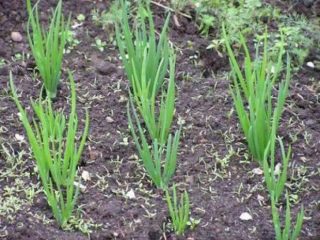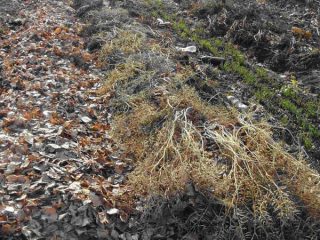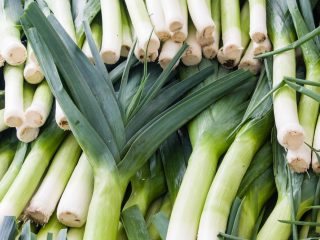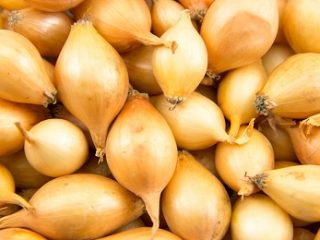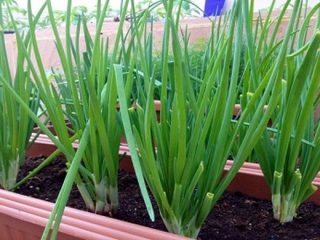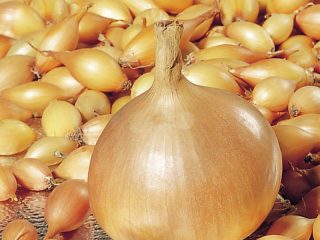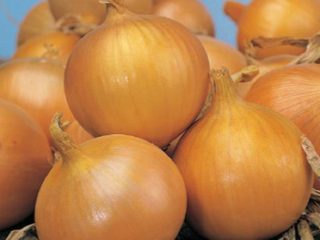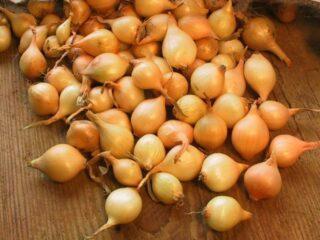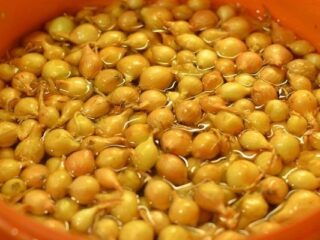Content
Soaking onions in tar before planting is necessary in order to protect them from pests and diseases. The procedure helps to disinfect planting material, destroys viruses, larvae and fungal spores that have settled in it, and provides reliable protection against them. This method is quite well-known and is often used by vegetable growers; the main thing is to organize the whole process correctly and then you can be sure that, together with high-quality crop care, you will be able to reap an excellent harvest.

It is wise to soak onions in tar both before spring and autumn planting
Why soak onions in tar?
For high yields, you need not only to choose the right place to plant the crop and provide it with proper care, but also to process the material. For this purpose, gardeners use different actions, and one of the popular ones is to soak it in birch tar. This method is used to combat common infections and pests; the drug perfectly helps against the invasion of onion and carrot flies, as well as other parasites that have a keen sense of smell (mole crickets, voles, moles, silkworms), and protects the heads from the effects of fungi.
This product is sold in garden stores and pharmacies. It is sold in small glass vials at a nominal price; it is a solution with an oily texture and a specific odor. It is used both in pure and diluted form.
Advantages and disadvantages
Birch tar is a good preparation for treating onions before planting, with its pros and cons.

If you soak planting material in tar, you can be sure that it will benefit the crop
Advantages:
- crop protection from pests;
- prevention of viral and fungal diseases;
- ease of use;
- different ways of using;
- long-term protection;
- lack of adaptation in pests to the substance;
- permissibility of processing at any time of the year;
- environmental Safety;
- no negative impact on the soil and its composition;
- low cost of the drug.
Flaws:
- unpleasant odor of the substance;
- repelling beneficial insects;
- short (2-3 hours) shelf life of the solution.
Choosing onions for soaking
You can soak onions in birch tar, but usually this procedure is performed with sets, the heads of which were purchased in a store and do not have healthy microflora. Also, specimens that are germinated to obtain seeds must be processed.
Rules for processing onions with birch tar
For the purpose of disinfection, birch tar is used in several ways.It is best to soak planting material in the preparation, but sometimes it is used to spray or water already planted beds, and also prepare mulch using it.
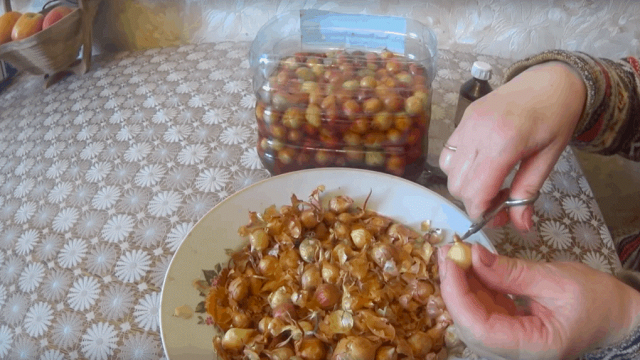
You can soak and treat onions with the preparation in any season, not only during sowing, but also during its further development.
How to soak onions in birch tar before planting
To soak onions in tar before planting, it is recommended to prepare them first. To do this, experts advise selecting all dense, healthy heads without signs of rot, ridding them of old husks, or carefully cutting the top of each so that the solution can penetrate under the scales. Next, keep the material on a warm (about +38 ° C) radiator, dilute the tar in water at room temperature in the proportion of 1 tbsp per 1 liter of liquid. l. substances, then soak the seeds in the mixture for three hours. At the same time, periodically stir the composition so that each head is well saturated with it. When the specified time has passed, dry the bulbs.
If you soak the heads in birch tar before planting, this will help activate growth processes, kill pathogenic bacteria, prevent the development of rot, and protect the soil from microorganisms. But this will be achieved only if all proportions are observed very clearly.
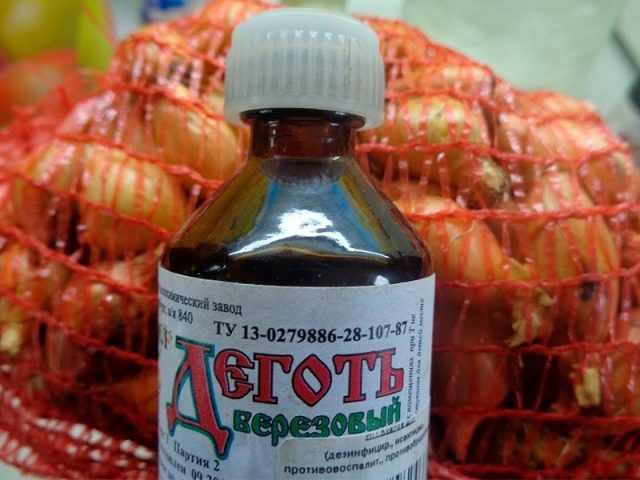
Soaking planting material is currently considered the most effective treatment method.
Watering onions with birch tar
The product is used not only for soaking, but also for watering beds. The area can be treated with tar water before planting.To do this, the drug in an amount of 30 ml is diluted in a watering can with water and poured into the furrows.
If the summer is rainy, then the onions are watered with tar several times a season so that the drug gets on the foliage.
Conclusion
Soaking onions in tar before planting is one of the ways that helps save the plant from the invasion of various pests, stimulates its growth and thereby makes it possible to obtain a high-quality harvest. But it is important to understand that this procedure does not provide a 100% guarantee of quality turnips. Do not forget that even with pre-sowing treatment, the plantings must be well cared for throughout the season.
